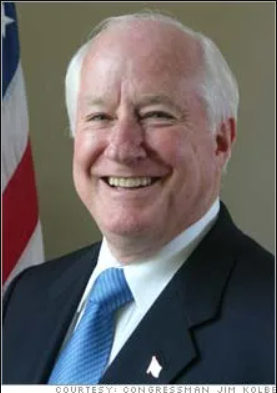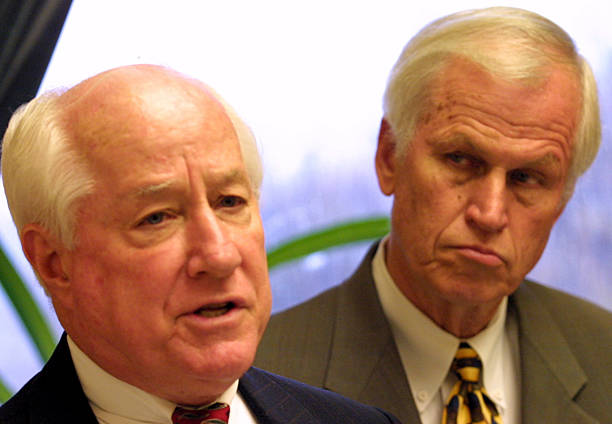On December 3, 2022, proponents of fiscal responsibility lost a pioneering champion: former Congressman Jim Kolbe (R-AZ). 
When candidates run for federal office, their platform often includes some version of “Elect me–send a leader to Washington!” and for most this is merely an empty platitude. For Jim, however, it was real. During his tenure on Capitol Hill, Jim led efforts to preserve Social Security for all generations, establish a guest worker program that would reduce the flow of illegal immigration and provide American businesses with the legal, tax-paying, temporary workers they need to thrive, and promote global development and international trade so poor nations could enjoy the benefits of a developed economy.
Jim knew well the dangers of our rising national debt and even after he left Congress in 2006, he continued to push for action as part of the 2010 Peterson-Pew Commission on Budget Reform and serving on the Board of Directors for the Committee for a Responsible Federal Budget (just to name a few).
Jim believed in bipartisanship. He knew lawmakers had to work across the aisle to solve the big problems, but for Jim that effort didn’t end on the House floor. He “walked the walk,” defending his compatriots even when it cost him politically. In 1998, he penned an open letter to a local Texas paper defending Congressman Charlie Stenholm, a friend and Democrat, whose re-election campaign was withering under repeated assaults over the 21st Century Retirement Security Act, a bipartisan bicameral Social Security reform proposal co-authored by Kolbe and Stenholm and their Senate counterparts, Democrat John Breaux of Louisiana and Republican Judd Gregg of New Hampshire. All four were original co-sponsors of the legislation but only Jim’s name was on the letter in Charlie’s defense. The letter earned Jim a stern rebuke from House Republican leadership (and possibly stymied any future promotion within the hierarchy) but that same spirit was eventually replicated by others.

I was lucky to know Jim personally. I was a legislative assistant in his DC office for three years at the very beginning of my Capitol Hill career. Bipartisanship, civility, compromise, and equity were his true norths and they became mine. He demanded that everyone call him “Jim”—no fancy titles—and he was fiercely loyal to his staff. When it was my turn to lead teams later in life, it was my experience in Jim’s office that guided my efforts. And when Jim’s principles no longer had a home in the halls of Congress, he eschewed lobbying and left for other influential platforms in academia and policy institutes, and years later, so did I. In fact, as I pen this tribute, I realize that no other lawmaker had greater influence on me and my work than Congressman Jim Kolbe—and I am immensely proud to acknowledge that.
The Kolbe Krew—his cadre of former staff—is a large and cohesive community. We’ve scattered since our Capitol Hill days, but Jim always brought us together. Reunions were often co-timed with his annual margarita party (the unofficial start of summer on the Hill), where we’d find him wearing an apron and a big grin, manning a long line of blenders containing his secret ingredient (beer). It makes me smile to think of Jim showing up at the pearly gates with a pitcher of frothy lime happiness.
I cried when Jim retired from Congress because I knew what it foreshadowed: a spiraling decline of political courage and compromise. Today’s political climate suggests I was right, but I still have hope that someday others (Gen Z?) will step into the leadership void he left behind.
Godspeed, Jim. You are my hero.




